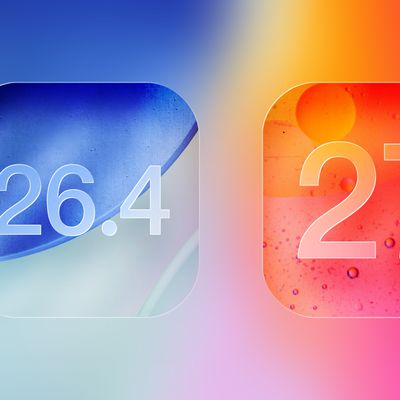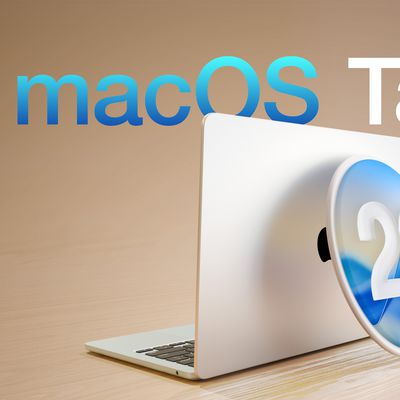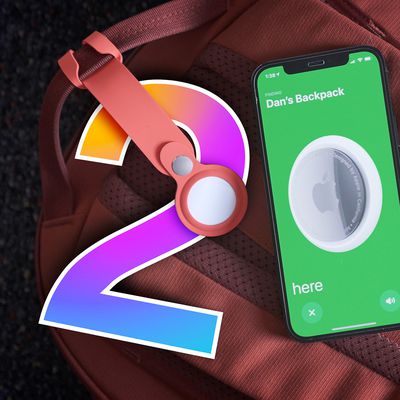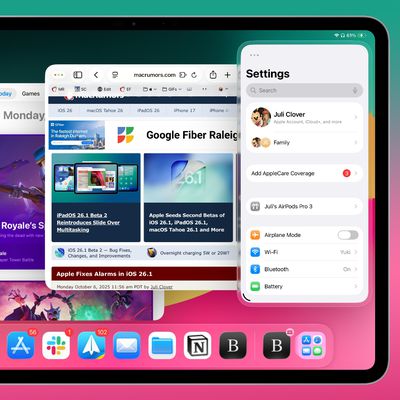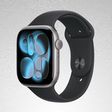iPhone 4 is Faster than 3GS and Slower than iPad in Early Benchmarks
Early benchmarks of the iPhone 4 show it to be 31% faster than the iPhone 3GS according to the
Geekbench 2 app.
Geek Bench has been a popular benchmarking utility on the Mac that has recently made the jump over to the iPhone. As always, benchmarks are a bit of an artificial gauge of performance, but can be useful in head to head comparisons.
The iPhone 4 is known to use the same Apple A4 processor that is also found in the iPad, but Apple has never revealed the processor speed of the iPhone 4. The iPad is known to have a 1GHz processor. We looked at a few benchmarking utilities to see if we could determine if the iPhone 4's A4 processor was the same speed as the iPad's. Unfortunately, the state of benchmarking on iOS seems a bit primitive, and is further complicated by the fact that iOS 4.0 does not run on the iPad. GeekBench, for example, only runs on iOS 4, so we can't compare it directly to the iPhone 4's results. A couple of other benchmarking tools available produced some inconsistent results, so we can't be completely confident in them, but it appears that the iPhone 4 is indeed faster than the iPhone 3GS but slower than the iPad.
BenchTest: 3GS: 2.298, iPhone 4: 2.514, iPad: 3.667 - This benchmark only showed a small increase in speed with the iPhone 4, but some of the results seemed strange. All the "seconds" in the iPhone 4 results were listed at 0.00, though a score was still generated. It's hard to say if the results are entirely accurate.
Checkup: 3GS, iPhone 4, iPad - This also showed the trend of iPad > iPhone 4 > iPhone 3GS, but running the benchmark multiple times could result in a large variance.
Popular Stories
Apple seeded the second iOS 26.2 Release Candidate to developers earlier this week, meaning the update will be released to the general public very soon.
Apple confirmed iOS 26.2 would be released in December, but it did not provide a specific date. We expect the update to be released by early next week.
iOS 26.2 includes a handful of new features and changes on the iPhone, such as a new...
Macworld's Filipe Espósito today revealed a handful of features that Apple is allegedly planning for iOS 26.4, iOS 27, and even iOS 28.
The report said the features are referenced within the code for a leaked internal build of iOS 26 that is not meant to be seen by the public. However, it appears that Espósito and/or his sources managed to gain access to it, providing us with a sneak peek...
Apple today released iOS 26.2, the second major update to the iOS 26 operating system that came out in September, iOS 26.2 comes a little over a month after iOS 26.1 launched. iOS 26.2 is compatible with the iPhone 11 series and later, as well as the second-generation iPhone SE.
The new software can be downloaded on eligible iPhones over-the-air by going to Settings >...
Apple today released new firmware designed for the AirPods Pro 3 and the prior-generation AirPods Pro 2. The AirPods Pro 3 firmware is 8B30, up from 8B25, while the AirPods Pro 2 firmware is 8B28, up from 8B21.
There's no word on what's include in the updated firmware, but the AirPods Pro 2 and AirPods Pro 3 are getting expanded support for Live Translation in the European Union in iOS...
Apple today released macOS Tahoe 26.2, the second major update to the macOS Tahoe operating system that came out in September. macOS Tahoe 26.2 comes five weeks after Apple released macOS Tahoe 26.1.
Mac users can download the macOS Tahoe update by using the Software Update section of System Settings.
macOS Tahoe 26.2 includes Edge Light, a feature that illuminates your face with soft...
The AirTag 2 will include a handful of new features that will improve tracking capabilities, according to a new report from Macworld. The site says that it was able to access an internal build of iOS 26, which includes references to multiple unreleased products.
Here's what's supposedly coming:
An improved pairing process, though no details were provided. AirTag pairing is already...
Apple today released iPadOS 26.2, the second major update to the iPadOS 26 operating system released in September. iPadOS 26.2 comes a month after iPadOS 26.1.
The new software can be downloaded on eligible iPads over-the-air by going to Settings > General > Software Update.
iPadOS 26.2 continues with the multitasking improvements that were added with iPadOS 26.1. You can now drag and...
Foldable smartphone panel shipments are projected to jump 46% year-over-year in 2026, with Apple's entry into the market serving as the main catalyst, according to Counterpoint Research's latest Foldable-Rollable Display Shipment Tracker.
"Apple is the key driver as it starts to procure panels for its first foldable iPhone," said Counterpoint's Guillaume Chansin. The research firm expects...





